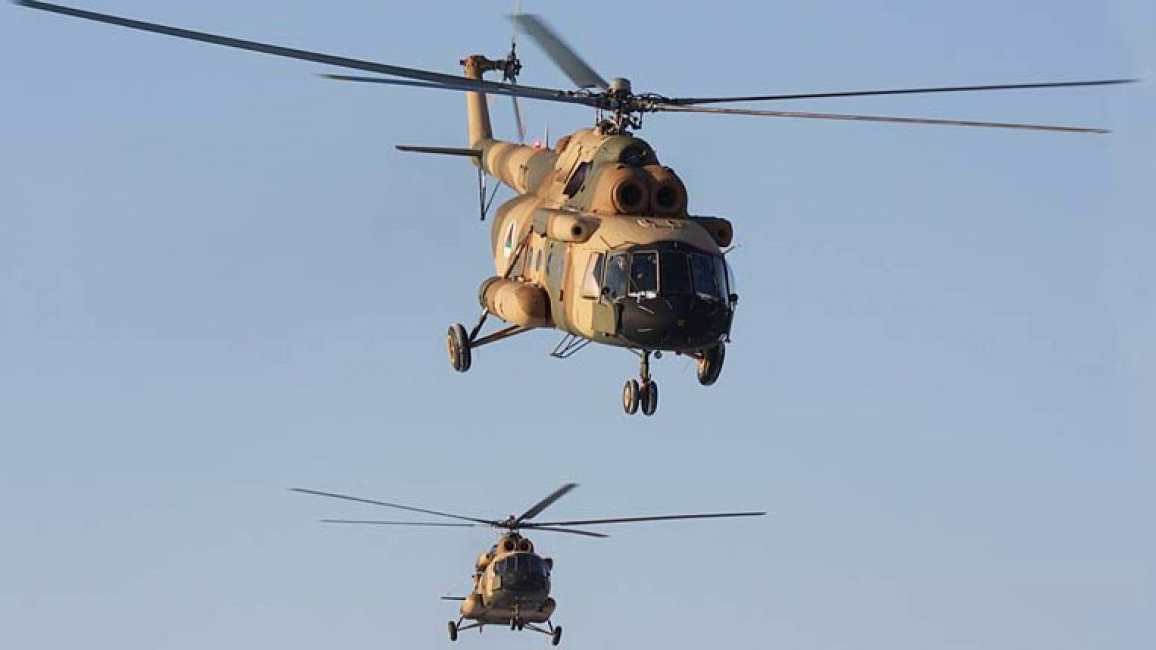How Russia Tried to Discredit Ukrainian Aircraft Builders
2/3/2021

In late 2020, the Ukrainian side won one of the tenders for the repair of two Mi-17V-5 helicopters for the Afghan Air Force. At this, the Afghani professionals carefully studied all the documentation provided to them for the repair of helicopters, the terms of the contract, and signed it without any objections.
Immediately, Russian Helicopters holding company stated that “Ukrainian companies endanger the lives of the American and Afghan soldiers”. The statement issued by the press service of Russian Helicopters company stated that Ukraine had no right to such repair without the participation and control of the developer and manufacturer of this type of helicopter – Russian Helicopters holding company.
Besides, the Russian holding explained that Motor Sich (Zaporizhzhya) and Aviacon (Konotop) could not perform the repair of the Mi-17V-5, as those Ukrainian enterprises had not been supplied with actualized repair and design documentation and spare parts for the helicopters. And also because representatives of the Russian developers and manufacturers were not involved in the repair.
The holding said that it disclaimed all responsibility for further safe operation of mentioned helicopters. Finally, the Russian side resorted to threats, saying that the holding “will notify all interested Russian and foreign organizations and authorities about the inclusion of Ukrainian companies in the list of aircraft repair enterprises carrying out illegal overhaul of Russian-made helicopters”.
What was the true reason for such a reaction from Russian Helicopters? And not only from it. The Russian propaganda machine inside Russia and abroad, including RIA Novosti, Russia Today and other media, jumped on this topic.
The history of purchasing helicopters for Afghanistan dates back to 2001. Then, as part of a pilot project to purchase weapons under the Foreign Military Sales program, the US government began purchasing Russian Mi-17V-5 multi-role helicopters for the Afghan Air Force. Russian helicopters were chosen, not American or any other, because the Afghan military already had experience in servicing and flying on them.
In total, more than 60 helicopters were purchased. At the same time, the question of maintenance of the helicopters arose. Why didn't they ask Russia? In 2014, the United States, after the beginning of Russia's aggression against Ukraine, stopped the implementation of this project. Due to Russia's violation of international norms. In addition, the US government began to impose a number of sanctions against Russia, primarily against defense industry enterprises. In such a situation, allowing the Russians to repair those helicopters was out of the question.
Nevertheless, the Russian side insisted that “without the participation and control of the developer and the manufacturer of this type of helicopters” no one could do anything, let alone Ukraine.
But international practice testified to the opposite. For example, in 2015, the NATO Support and Procurement Agency (NSPA) announced a similar tender for the maintenance of the Mi-8 of the Afghan Air Force. Under the terms of the tender, only companies registered in the member countries of the Alliance could apply for the contract. By no means Russia. At that time one of Slovak companies won the tender.
The Russian holding's next argument was that Ukraine did not have rights of some kind and legitimacy. The accusation ended in September 2019 with the official presentation by US Strategic Advisor Donald Winter to the then Minister of Defense of Ukraine Andrii Zahorodniuk of the United States' certificates that would allow Ukrainian defense industry enterprises to repair MI helicopters for foreign customers.
It was the Russian Federation's another attempt to denigrate Ukrainian aircraft builders. And there were many such attempts. For example, in September 2020, Russian Helicopters holding sent a letter to the Indian Air Force, claiming that it was the only representative for the overhaul and supply of spare parts for Mi-17V-5 helicopters and VK-2500-03 engines. This reaction was the result of the tender won by the Ukrainian company Motor Sich for the overhaul of VK-2500-03 engines on Indian Mi-17V-5s. The letter stated that the Russian Federation revoked the license for overhaul of VK-2500-03 engines at Motor Sich plant in 2018.
But after consultations and clarification of all the circumstances, the Indian side saw for itself that the Ukrainian company is the manufacturer of these engines, and it is able to make repairs of any complexity.
In general, the experience of Ukrainian manufacturers in the maintenance and repair of helicopters inside the country and abroad, accumulated over many years, is the main indicator of qualification and reliability for international partners.
If we return to the White Paper of the Foreign Intelligence Service of Ukraine, in the section on the assessment of external threats to Ukraine's national security we can find the following theses: “Russia will discredit Ukrainian enterprises on international markets”; “…enterprises of the defense-industrial complex will remain targets for attacks”; “There are already in progress allegations of inadequate quality control, etc.”
That is, the methods honed over the years of discrediting Ukrainian manufacturers and disinformation of the world community are actively used, improved and strengthened by the propaganda component. One of the blocks of the White Paper, entitled “The Mechanism of Russian Information Influence” reads: “The information component of the Kremlin's hybrid activity is based on the established system of disinformation and external propaganda. It is primarily about the activities of Russian international propaganda media, such as foreign units of such well-known “fake factories” as Sputnik or Russia Today.
The example of Russian Helicopters holding clearly confirms this.
